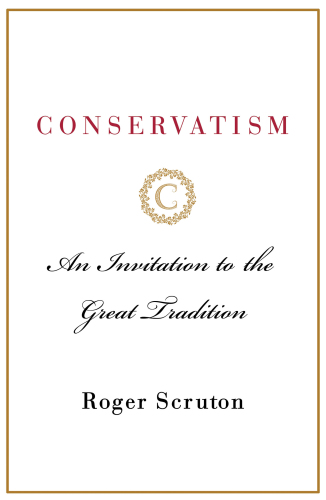
Conservatism
An Invitation to the Great Tradition
کتاب های مرتبط
- اطلاعات
- نقد و بررسی
- دیدگاه کاربران
نقد و بررسی

April 30, 2018
Citing the tumultuous state of world affairs as a reason to look backward, philosopher Scruton thoughtfully explores the underpinnings and evolution of conservatism in this concise work of political philosophy. He identifies values central to and issues formative of the conservative worldview in different eras; conservatism has defined itself at various times, he says, in opposition to such forces as individualism and “political correctness,” economic socialism, populism, and militant Islamism. Tracing contemporary conservatism back to its roots, he begins with the English Enlightenment thinkers Thomas Hobbes and John Locke, connecting them to Edmund Burke and Adam Smith, whose writings he asserts formed the basis of modern conservatism. He briefly summarizes the contributions of major 19th-century German and French conservative thinkers—
positing that Joseph de Maistre, François-René Chateaubriand, and Alexis de Tocqueville “all reject some aspect of the Enlightenment,” and 20th-century “cultural conservatism” focused on preserving and restoring to cultural importance the recently dethroned traditional centers of rural life (in Britain, the Anglican Church; in the U.S., agrarianism). He also discusses conservatism’s coming to define itself in opposition to socialism in the 20th century. He fails, however, to delve into conservatism’s current status, with Donald Trump getting nary a mention. Nevertheless, this is a coolheaded, reasonable survey of conservative thought.

























دیدگاه کاربران